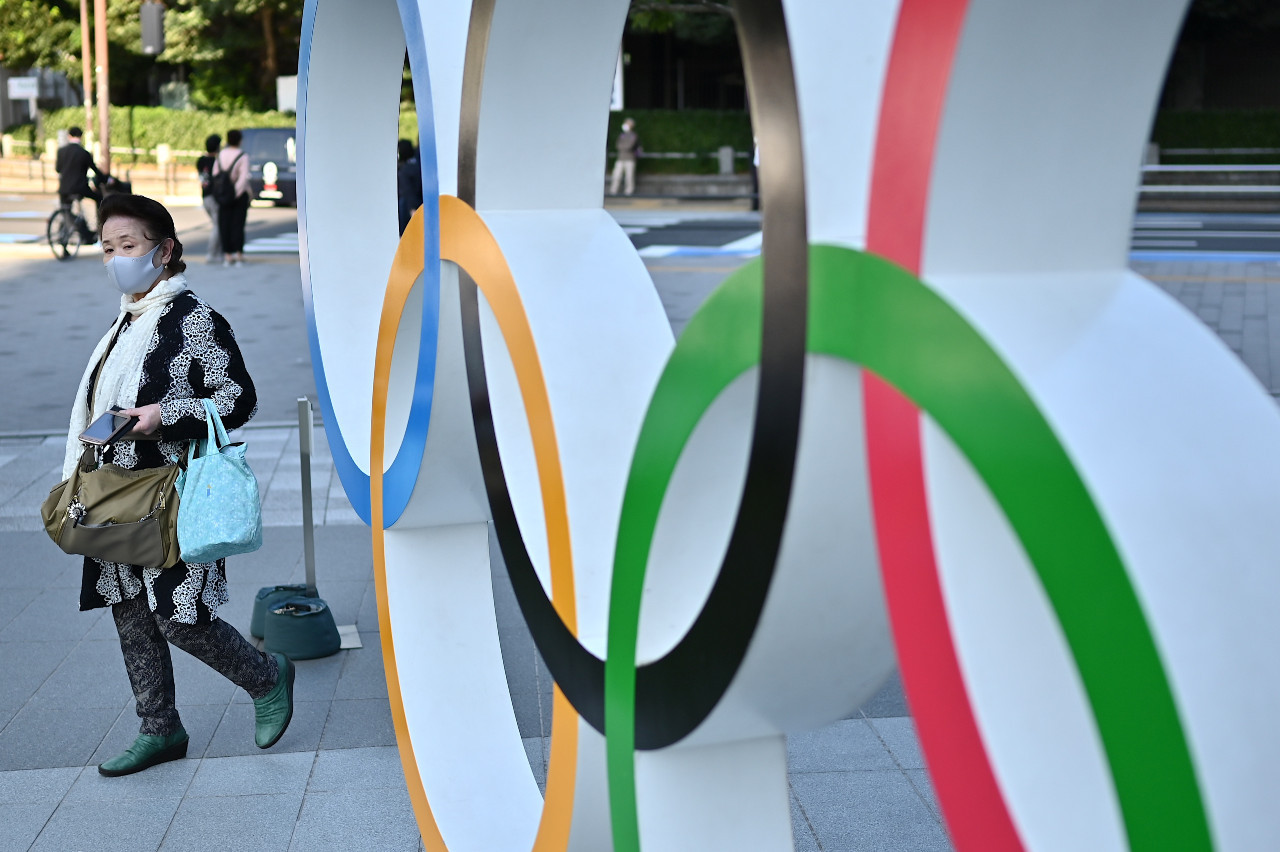Popular Reads
Top Results
Can't find what you're looking for?
View all search resultsPopular Reads
Top Results
Can't find what you're looking for?
View all search resultsJapan to test all Olympic athletes for COVID on daily basis
As part of efforts to improve the safety of the Summer Games amid the coronavirus pandemic, Japanese officials agreed on the policy a couple of hours before a high-level online meeting with the International Olympic Committee and other organizers.
Change text size
Gift Premium Articles
to Anyone
T
he Japanese government on Wednesday endorsed a policy to test all athletes participating in the Tokyo Olympics for the novel coronavirus on a daily basis in principle.
As part of efforts to improve the safety of the Summer Games amid the coronavirus pandemic, Japanese officials agreed on the policy a couple of hours before a high-level online meeting with the International Olympic Committee and other organizers.
Other anti-virus steps at the Olympics that will open in less than three months approved at a meeting at the prime minister's office include requiring athletes and staff from overseas to be tested for the virus twice within 96 hours of departure from their respective countries.
During the five-party virtual meeting, in which IOC President Thomas Bach and representatives of the other organizers will take part, a major issue to be discussed is whether to limit the number domestic spectators after deciding in March to stage the Olympics and Paralympics without those from overseas.
On Wednesday, the organizers will also release an updated version of their "playbooks" for athletes, featuring rules they must follow during the games.
While Japan's roughly 577,000 confirmed COVID-19 infections are fewer than many other countries, media polls have repeatedly shown that a majority of the Japanese people are not in favor of hosting the games this summer following a one-year postponement.
The organizers have emphasized the importance of testing athletes and visiting officials frequently to detect infections at an early stage and prevent the games from becoming a super-spreader event.
However, some medical experts have voiced concerns over staging the games at this juncture when highly contagious variants of the virus are spreading in many countries, and when the strain on Japan's medical system has been increasing.
On Wednesday, a senior Cabinet official said the Japanese government will secure about 30 hospitals capable of accepting athletes and officials during the Olympics.
Prime Minister Yoshihide Suga has vowed to take steps to ensure the Tokyo Games are "safe and secure," but he has been unsuccessful in bringing down infections.
Tokyo and several prefectures have been under a third state of emergency until May 11 due to a recent spike in infections. The capital on Wednesday confirmed 925 cases of the virus, the highest figure since Jan. 28.
Under the emergency that took effect Sunday, large commercial facilities, theme parks, karaoke establishments and restaurants serving alcohol have been asked to close.
Meanwhile, Japan's vaccine rollout, which has been criticized as too slow, only began for those 65 and over earlier this month, and it is impossible for much of the general public to be inoculated by the start of the Olympics on July 23.
The IOC and the Tokyo organizing committee have not made vaccination a requirement for athletes and officials. But the IOC has recommended they receive shots to protect the health of the participants and the Japanese public.










